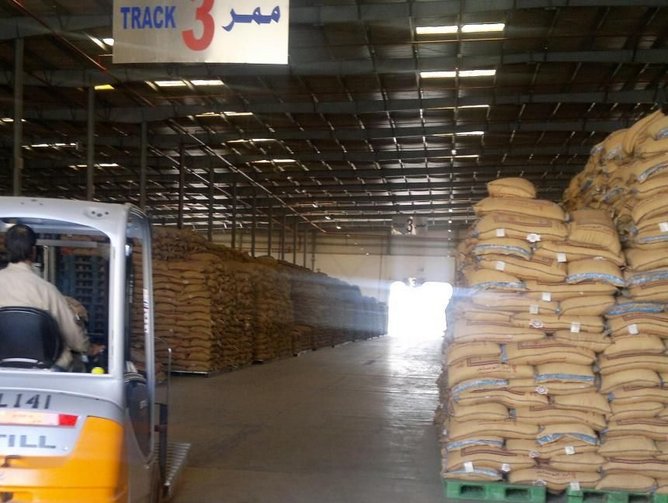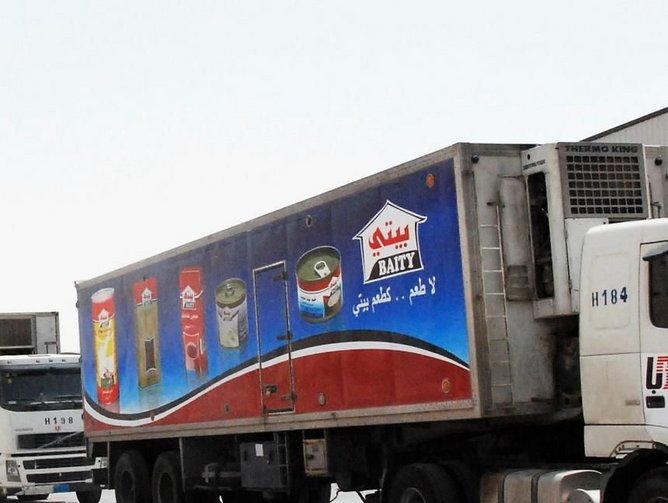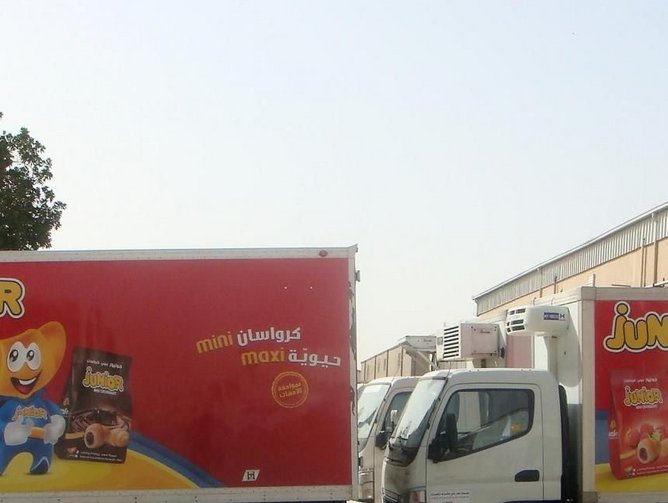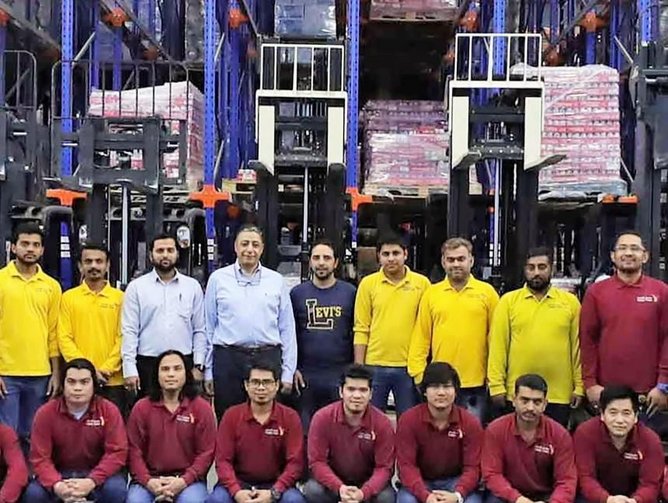How Balsharaf Group’s extended warehouse management solution is driving operational excellence
Today, the consumer goods industry faces some pressing questions: how to keep track of inventory, how to make warehouse operations more accurate and cost effective, how to cut down losses due to product expiries, and how to be more efficient with customer deliveries. Warehouse management has proven to be a challenge for many businesses, but Saudi firm Balsharaf Group believes it has found the answer with SAP’s cutting-edge extended warehouse management (EWM) platform for its logistics company, Salasel Al Emdad.
Technological innovation is at the crux of Balsharaf’s strategic vision and this has particularly helped the logistics arm. Chief Information Officer (CIO), Sajid Riaz, sheds light on how, as the cost of workers rises, the group has zeroed in on new technologies to understand and measure employee productivity at new depths. “Today, Saudi Arabia’s logistics sector heavily depends on expat workers,” he explains. “As they become more expensive to hire, there is a growing need to reduce costs and become more optimised, but how do you do it? It’s not an easy task to become more efficient and productive. You need a technical solution to help you optimise and automate so that you can cut down on manual work and wasted efforts; you need technical help to devise standards for each role, based on past performance data and solutions to measure if employees are delivering as per the standard – and that's where EWM has come into the picture.”
In 2012, the company implemented SAP’s enterprise resource planning (ERP) tool to automate all the functions of core businesses within the group but Riaz contends that this latest addition of technology is “taking the company’s logistics operations to the next level”. Processing the movement of stock, EWM handles all the internal processes of a warehouse, allowing the firm to prepare for incoming and outgoing shipments effectively. “With EWM, you can design and understand your warehouses with a lot more accuracy,” Riaz explains. “For example, you can note exactly how many cartons a forklift operator transports in a period of time.” With this insight, Balsharaf Group can not only calculate the cost of storage, but it can also gauge the manpower required to transport a shipment. This means that if it needs to pick up 90,000 cartons in a day it will know how many forklift operators are needed for the job.
“It's a much more scientific approach to warehouse management,” Riaz adds. “It's not relying on a gut feeling. You can plan and predict what’s going to happen in a week or a month’s time. It allows you to effectively see what kind of warehouse space you will have in the future, and what kind of staff will be needed on a certain date based on the extent of work you will have to complete at that time. All this is possible because the system operates on delivery dates for all outbound and inbound transactions that are entered for present and future tasks.”
The solution significantly helps plan shipments and at the same time, it also ensures the movement of products based on ‘first expiry first out’ (FEFO), a logistics method whereby products which expire sooner are shipped first for consumption. A key player in the food and beverage space, Balsharaf Group is aware that food waste is a growing problem in the MENA region. In Saudi Arabia alone, the estimated economic impact of food waste is $13.3bn per year, according to Arabian Business. Riaz believes solutions such as EWM could go some way to tackle the issue.
“Almost all of our third-party logistics (3PL) customers are in the FMCG (fast-moving consumer goods) business,” Riaz notes. “One of the biggest issues they face is the need to constantly move items based on what's expiring first.” This may seem simple in practice, but when faced with a large-scale warehouse, it can be difficult to detect where a particular batch of items is located. EWM is beneficial as it can tell users exactly how to arrange the warehouse for storing items based on product expiry and where to pick the products based on FEFO. This cuts down on lost revenues due to expired products. “For many of our 3PL customers, if we combine the losses incurred every year because of expired items, we're talking about 4-5mn SAR,” Riaz adds. “EWM can drastically cut these losses which gives us a competitive advantage as a 3PL service provider.”
Processing more than 1,000 customer deliveries a day across the kingdom for all 3PL customers of Salasel Al Emdad, Riaz argues that the solution should ensure customers’ deliveries are accurate in terms of quantity and remaining shelf life, and should happen as per SLA’s agreement with the client. “With EWM, since the products have been meticulously labelled for storage, you know how much stock you have, where it is kept and when it is expiring,” he says. “The accuracy of the EWM system is very high and I think this brings in competitive advantage to you as a 3PL service provider. It certifies you’re selecting the right quantity of products with the right expiry date and that they’re delivered on time with the planning offered by EWM.”
EWM has enabled a whole new level of efficiency for Balsharaf, yet this transformation didn’t come easily. One of the biggest challenges the firm faced during the process was finding the right implementation partner. There may be many players for SAP ERP implementation in the region but expertise in solutions like SAP EWM is rare. “You need to make sure that you are working with the right implementation partner,” observes Riaz. After thorough research and numerous meetings, the company chose the German firm Westernacher, which has over 40 years of experience in implementing warehouse management systems.
“The best thing that Westernacher did for us is what they call a ‘Warehouse Health Check’ whereby they spent four to five days with us even before we signed a deal for the implementation. They offer an industry expert who visits your warehouse, studies the warehouse’s processes and design, and tells you what problems you currently have. They also tell you how EWM solutions will address these issues.
“This is a very smart move on their part because it allows you to assess their expertise and professionalism before the start of the project. It helps you to develop trust with your future implementation partner,” he adds. “Westernacher has been very patient with us. They understand what we're trying to achieve as a business and in each and every step they have gone the extra mile to support us.”
This technology wasn’t implemented effortlessly, says Riaz. Instead, the firm worked carefully to guarantee that the system was rolled out perfectly the first time around, with the intended benefits, to ensure that their 3PL customers didn’t lose trust in the new system. This ensured that there wouldn’t be any service disruption to the ongoing business while implementing EWM or going live. “We might not have taken the easy and quick way but we’ve taken a more accurate way,” he says. “We have checked every single item for an expiry date, put a label on it, put that item in a particular location, and recorded this. This has confirmed that every item is in the right place, so when we’re live on the new system it should deliver results as promised. This has helped us foster trust and support internally with our customers.”
Embarking on a root-and-branch transformation of its logistics business, Balsharaf understands the importance of having the right people on board to enable change. As a result of this, the firm strives to hire the best expertise in the market, including warehouse managers and forklift operators with past experience in EWM or WMS solutions. On top of this, the company has also ramped up its training programmes. “We overhauled the entire team to ensure we had the right kind of people on board with the right mindset and experience to run the new system. This makes change management a lot easier,” Riaz says. “Then we had a very long training and testing period. This culture change ensured the success of the roll-out.” Boasting over 50 years’ experience in the sector, Balsharaf Group is all too aware of the importance of both continuous improvement and innovation. Now, with plans to roll out EWM across more of its warehouses, it seems the Saudi firm plans to cement its position for years to come.





